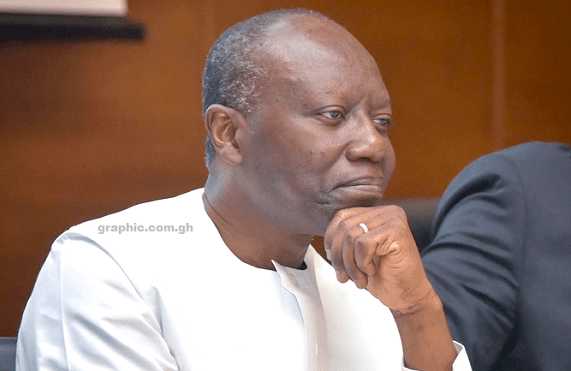
PIAC advises Finance Ministry on petroleum revenue
The Public Interest Accountability Committee (PIAC) has asked the Ministry of Finance to ensure that the priority areas selected for the Annual Budget Funding Amount (ABFA) disbursement are approved by Parliament before implementation, as required by Section 21 (5) of the Petroleum Revenue Management Act (PRMA) (Act 815).
The PRMA provides 12 areas where the ABFA could be disbursed, and out of these, the Ministry of Finance is expected to select four of them after every three years. The areas selected must, however, be presented to Parliament for approval before disbursement.
The priority areas for disbursement expired in 2019 and as such the ministry had to select new priority areas for 2020-2022.
But in its 2020 annual report, PIAC noted that the 2020 – 2022 priority areas selected for ABFA disbursement were not presented to Parliament for approval in the 2020 Budget Statement and Economic Policy, as required by the PRMA.
The committee has therefore recommended to the ministry to seek the approval of Parliament before it starts implementation.
Other findings
The report also highlighted that the Ghana National Petroleum Corporation (GNPC) utilised a make-up gas volume of 1,867.50Mmscf out of the total accumulated make-up gas volume of 35,630.32Mmscf, translating into an amount of US$15. 76 million.
It also noted that contrary to the PRMA, an unutilised amount of GH¢827.60 million from 2017 – 2019 was spent to partially meet the shortfall in ABFA receipts caused by the impact of the COVID-19 pandemic and its associated effects on crude oil prices globally.
It further highlighted that in spite of the implementation of the Cash Waterfall Mechanism, cumulative indebtedness of US$843.28 million to Ghana National Gas Company was still high.
Recommendations
PIAC, in its recommendations, asked that the ABFA should not be used to serve the purpose of filling expenditure gaps in times of revenue shortfall in the budget, as this was the purpose of the Ghana Stabilisation Fund under Section 9(2) of the PRMA.
The committee also reiterated that the ABFA should not be spread thinly, in accordance with Section 21 (1-3) of the PRMA.
As such, it called for the need to have a Long-Term National Development Plan, as stipulated in Section 21(2)(d) of the PRMA to guide the spending of petroleum revenues, instead of resorting to the fallback position of ministerial discretion in selecting the priority areas.
PIAC also called for the necessary gas infrastructure needs to be put in place by government to ensure that the make-up gas from SGN was taken and utilised.
Important pillar
At the launch of the report in Accra, the Chairman of PIAC, Prof. Kwame Adom-Frimpong, said public accountability was an important pillar of any parliamentary democracy.
He said any public body that used and managed public funds and resources was accountable to Parliament and the entire citizenry.
“As you are aware, the committee was established under the Petroleum Revenue Management Act (PRMA), 2011 to monitor and evaluate compliance by government and other relevant institutions in the management and use of the petroleum revenues and investments.”
“It also has a mandate to provide space and platform for the public to debate the extent to which spending prospects as well as the management and use of revenue conform to development priorities. Additionally, it provides independent assessments on the management and use of petroleum revenues.”
He said the purpose of the report was to account for the committee’s responsibilities to Parliament, the Government and the entire public on the use and management of petroleum funds in 2020.
He noted that the citizens of the country were the owners of the nation’s resources and it was therefore important to let them know how effective, efficient and transparent petroleum revenues were being used to promote sustainable growth and development in Ghana.
“The use of petroleum revenues requires sound financial management and full accountability to the general public. The PRMA, which established PIAC, envisages proper management and use of petroleum revenues to maximise economic development and benefits for future generations as well,” he stated.